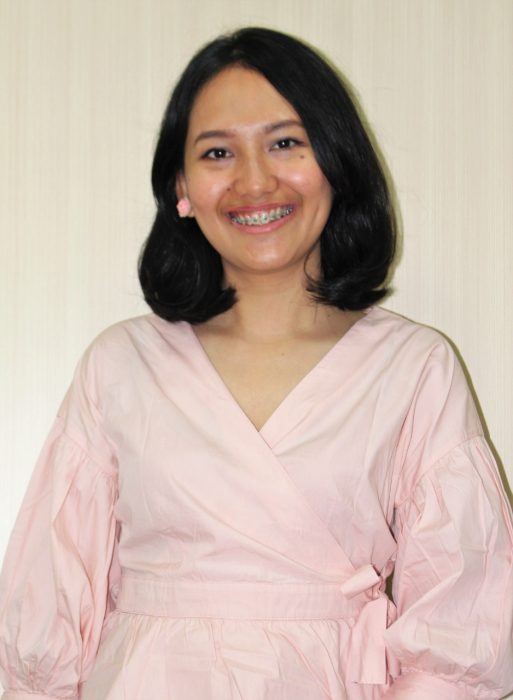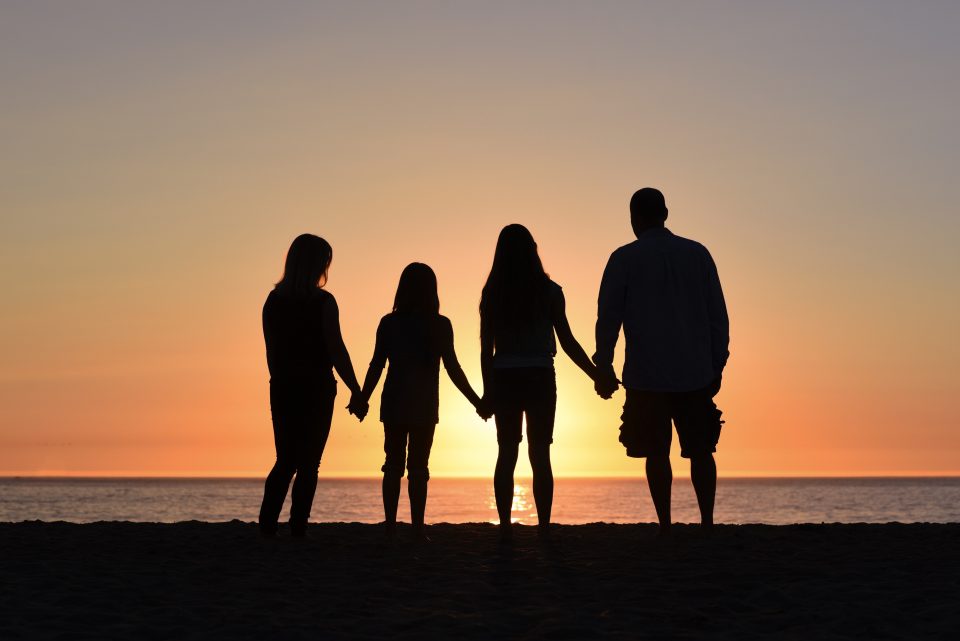“Sometimes, my children complain about how a mixed marriage child, who seems to be living a lovely life to a lot of people, actually also feels disheartened.
They even said that if they choose one citizenship over another, that means they’re playing favours with the love of their other parent!” said a mother, detailing her children’s thoughts on having a multicultural upbringing.
Cross-cultural families are often deemed to be privileged, offering a shortcut to a better life, beauty, and endless opportunities. There are more layers that the eye can see; after speaking to several young adults who have Indonesian mothers and foreign fathers living in Indonesia.
Growing Up Cross-Culturally
Various factors shape a person, depending on their experiences, environment, and upbringing. Estrelita Gracia Siburian, S.Psi., M.Sc. is a cross-cultural marriage and parenting consultant. She says that parents are bound to have different parental values such as the parenting style, preferences, and educational aspirations between themselves.
Psychological impacts come in play too. According to the book “TCK: Growing Up Among Worlds” by David Pollock (2009), there are steps to create a smooth transition for a third culture kid, known as RAFT (Reconciliation – Affirmation – Farewell – Think Destination). Children start to feel worried, frustrated, anxious, sad, and even depressed about their uncertain journeys ahead whilst preparing for the farewell and leaving phases. Feelings of rootlessness and restlessness from constant moving are common, even once they settle down in a particular place. Hence, Estrelita believes that cooperative roles and constant support from parents, friends, relatives, schools, community groups, and organisations are tremendously important to build confidence, positive self-image, and high self-esteem.
According to an article on Owlcation on the effects of interracial marriage on children, “a parent who speaks a foreign language in the household may indicate the exposure to the cultural practices of either one or both of the parents in respect to their ethnicity”. The Indonesian actress Hannah Hannon defines language proficiency as a burden. AS, an American-Indonesian university student currently in Australia, sees eye to eye with Hannah.
Though being bilingual is considered an advantage, both struggle and oftentimes get confused when using English and Indonesian in their daily lives. “Most of the jobs that I was looking for required me to speak fluent Indonesian with clients and customers, meanwhile, I attended an international school speaking English and staying in my comfort zone every day,” said AS. Estrelita concurs that language barriers are the most frequent hassle, especially for Third Culture Kids (ATC). “Once these families reside in a different city or country, they most likely have fewer chances to meet the family from the parents’ place of origin,” she said.
Hannah Hannon is the only child of a Sundanese mother and an Australian father from Sydney. Growing up in the coastal town of Pelabuhan Ratu, West Java, Hannah spent most of her childhood at the beach, then eventually moved to Jakarta due to her father’s job. “I moved quite often, probably seven times. I ended up moving to Jakarta again to this day,” she said. Meanwhile, AS moved to Jakarta from Chicago at 15.
Esterlita added that living in a foreign place requires a higher degree of tolerance and flexibility to adjust and learn the local culture. “I had to adjust my personality and mentality to become comfortable,” AS explained, saying this led him to learn morals that neither schools nor his parents could teach since it was mostly from daily experiences in Indonesia.
“There are unspoken rules we have in Indonesia that we’re unconsciously taught as children, like ‘bersalaman’, the act of taking an elder person’s hand to the youth’s forehead. In America, I’d usually say, ‘Hey what’s up?’ But in Indonesia, I have to ‘salam’ the elders as a gesture of respect. I didn’t know that because my mother never really instilled that in me growing up.”
Hannah added the perception of looking in as an outsider and not being in tune with the locals surrounding her as another burden. JJN, a Norwegian-Indonesian freelancer born in Jakarta and now based in Bandung, agrees. JJN said she never felt a sense of belonging to one culture; it’s always been somewhere in between. Walking around in Norway, she’s the woman who has Asian features, meanwhile, in Indonesia, she’s among the few who have Caucasian features.
These three young adults resonate more with one culture than the other while having the utmost respect for their parents’ cultures. Hannah didn’t spend time in Australia but she still resonates more with her Australian side because she can express herself better, whereas AS resonates more with his American culture due to spending most of his life in the US. However, having lived in Indonesia for the majority of her life, after having attended elementary school in Norway, JJN resonates more with Indonesia since it’s a bigger part of herself. “I like the people here as they’re more family-oriented and not individualistic, which suits me better,” explained JJN.
Either way, Estrelita noted that the biggest upsides for ATC include their abilities to enrich cultural knowledge, expand their networking, and enhance socio-emotional skills such as tolerance, respect, adjustment, and even communication skills. JJN conveyed, “I became open to others – I never judge someone based on their culture or their background. I’m more open-minded compared to others based on my upbringing since my parents allowed me to do whatever I want.” Hannah and AS have also taken the positive morals and values from both cultures despite their personal challenges.
21 and Choosing a Citizenship
Every mixed marriage child with an Indonesian parent will eventually choose their citizenship by the time they turn 21. Understanding the pros and cons of citizenship based on the political, economic, educational, cultural, and even environmental aspects are in great need prior to making their first legal decision, claims Esterlita. This is another tricky part. Dual citizenships aren’t available under Indonesian law but are acceptable in some other countries. Having to make this type of life-changing decision before the cognitive brain is mature enough to determine one’s wellbeing is difficult. No one is assured of their future endeavours – not even for the rest of 2020! But several mixed marriage communities in Indonesia are lobbying the government to claim dual citizenships.
An Indonesian mother of two, who prefers to stay anonymous, spoke out about her concerns over her children choosing their citizenship. Though they’re still in their teens, they wish to possess dual citizenship until as late as possible.
Now staying in Jakarta after 21 years in Denmark, she and her Danish husband have discussed the subject based on the future of their children and concluded their children would be better off with Danish citizenship due to the countless benefits it brings. “We just want the best for our children; a country that offers the best possible opportunities,” she said. “I moved to Denmark in 1994 when I just finished high school. My education certificate was unacceptable so I had to repeat high school in Denmark. I love Indonesia but I’m thinking about my children’s wellbeing,” she concluded.
JJN chose Norwegian citizenship and it wasn’t a rough process. “My dad once offered for me to study in Norway but I declined because my parents are here and I’ve never thought about going abroad again since Indonesia is pretty much my home,” JJN said.
Her birth certificate was already stated as a foreigner, making JJN accustomed to dealing with paperwork, and visiting the local immigration office has become a part of her lifestyle. Her father allowed her to choose but he had instilled in her to keep her Norwegian passport since it gives more benefits. “My career has been very limited as a foreigner who grew up in Indonesia though,” she said. Nonetheless, she is optimistic about the day Indonesia will enable dual citizenship. If she could become an Indonesian citizen, JJN declared she’s 60 percent willing to, as long as she can provide for herself in Indonesia with the minimal benefits it provides.
As for Hannah, she still has several more years until she legally decides. “My parents are very supportive of whatever my decision is, as long as it makes me feel comfortable,” she said. Thus, Hannah is heavily leaning towards Australian citizenship because she’d love to live in Australia one day and obtain a student loan from the government to continue her education.
AS, however, was stressed because his American sisters and father were pushing to choose the same path as them. “After doing extensive research, anyone born in the US is always recognised as an American citizen. I ended up choosing Indonesian citizenship because, at the same time, I’m also an American though it’s unofficially stated as someone who has dual citizenship.” AS doesn’t regret his decision since nothing changed, even when he had to settle his state ID in the US.
Following Their Parents’ Footsteps
Significant takeaways for multicultural families are imprinted as CODE: Enrichment of Cultural knowledge, Open-mindedness, Diversity embodiment, and Enhancement of socio-emotional. “Constant communication is a tremendously effective tip while rearing a child. The Gottman Institute has stated that trust and commitment with our partner will lead us into the constant discussion to talk about values, principles, and character internalisation. Find the core values, share it with our partner, and compromise,” stated Estrelita.
Considering JJN’s current environment, she’s most likely to meet another Indonesian, although, she’s open to any foreigner – ensuring to educate her future children on all their traditions someday. Hannah is also unsure of who she’ll end up with but she desires to be with a foreigner and live by the beach, just like her upbringing. Yet AS contemplates having a multicultural family. He believes that not everyone is privileged to be exposed to more people and situations as he was, but he also ponders on the perks of being with someone from the same background as no extra commotion arises.
A Message to the Public
To diminish the stigma revolving around cross-cultural families, each has a message:
Hannah: “We’re all the same; we have our own struggles, we’re not the perfect image you think our lives are, we’re just like everyone else.” (@hannahhannon18 on Instagram)
JJN: “I wish more people could understand the small details of growing up in a multicultural family as it tends to be challenging.”
AS: “I yearn to be treated equally as others and condoned from not being introduced to a culture.”
Momentizing information:
- Website: www.momentizing.com
- Instagram: @momentizing
- Facebook: Momentizing
Click here for the consultation form.




